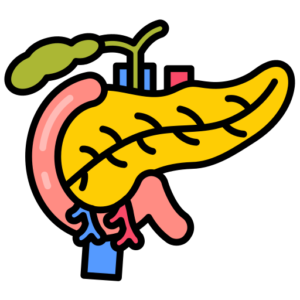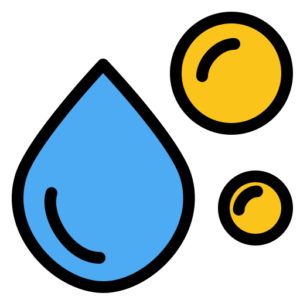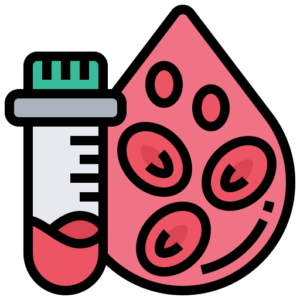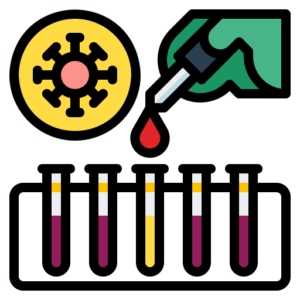Has your baby had a positive newborn screening test?

The first thing for you to know is that newborn screening is not a diagnostic test. It helps identify babies who might have a condition so that further testing can be done to see if they really do. Your baby’s doctor will get in touch with you to talk about what to do next. It’s important to follow your doctor’s advice right away and go to all appointments. Your doctor might suggest more tests or refer you and your baby to a specialist for more evaluation and treatment.
How can Raising Special Kids help?
We’re here to help families navigate difficult situations and understand healthcare diagnoses and insurance systems. If you want to speak with a parent whose child has received an out-of-range screening result or a diagnosis, we have trained volunteers who can share their experiences. Contact Raising Special Kids at 602-242-4366 or info@raisingspecialkids.org to speak with a family support specialist or request a parent-to-parent connection with one of our parent-leader volunteers.
What is newborn screening?
Newborn screening is performed soon after the birth of your baby, and in most cases, while you are still in the hospital. All it takes is a few drops of blood and a simple hearing test. The screening is a public health service that ensures all babies are screened for certain serious conditions at birth. A newborn may appear healthy but could have a serious condition that can’t be seen. Newborn screening gives babies who have these conditions the opportunity to get treatment and to prevent health problems, including developmental delay or death.
Arizona Parent Guide to Newborn Screening
Videos From the Arizona Department of Health Services
Social Security
Information on Compassionate Allowances
Compassionate Allowances are a way for the Social Security Administration to quickly identify medical conditions that, by definition, meet Social Security’s standards for disability benefits. These conditions include several rare disorders that affect children. The CAL initiative helps reduce waiting time to reach a disability determination for individuals. In the lists below, conditions currently on the Compassionate Allowances list are marked with an asterisk (*). For a complete list of Compassionate Allowances conditions and to learn more, visit https://www.ssa.gov/compassionateallowances.
What conditions are the screenings looking for?
All babies born in the US get newborn screening. However, each state decides which conditions to screen for in babies born in their state. This is called the state’s newborn screening panel. Arizona screens for primary and secondary conditions that fall under eight types listed below. You can see the entire list of conditions included in Arizona’s Screening Panel at https://www.azdhs.gov/documents/preparedness/state-laboratory/newborn-screening/providers/az-newborn-screening-panel-of-conditions.pdf. For more information on individual conditions and support resources, click their links below.

Amino Acid Disorders
Phenylketonuria (PKU)
Maple syrup urine disease (MSUD)*
Homocystinuria (HCY)
Citrullinemia type I (CIT-1)
Argininosuccinic academia
(ASA) Tyrosinemia type I (TYR-1)

Endocrine Disorders
Congenital hypothyroidism (CH)
Congenital adrenal hyperplasia (CAH)

Fatty Acid Oxidation Disorders
Carnitine uptake defect (CUD)
Medium-chain acyl-CoA dehydrogenase deficiency (MCAD)
Very long-chain acyl-CoA dehydrogenase deficiency (VLCAD)
Long-chain L-3-hydroxy acyl-CoA dehydrogenase deficiency (LCHAD)
Trifunctional protein deficiency (TFP)

Hemoglobin Disorders
S, beta-thalassemia (Hb S/β Th)
S, C disease (Hb S/C)

Lysosomal Storage Disorders
Mucopolysaccharidosis Type I (MPS I)
Pompe Disease (Glucosidase acid-1, 4-alpha deficiency)*

Organic Acid Disorders
Isovaleric acidemia (IVA)
Glutaric acidemia type I (GA-1)
3-Hydroxy-3-methylglutaric aciduria (HMG)
Multiple carboxylase deficiency (MCD) Methylmalonic acidemia-cobalamin defect (Cbl A,B)
Methylmalonic acidemia-mutase deficiency (MUT)
3-Methylcrotonyl-CoA carboxylase deficiency (3MCC)
Propionic acidemia (PROP)
Beta-ketothiolase deficiency (BKT)

Other Disorders
Biotinidase deficiency (BIOT)
Galactosemia (GALT)
Cystic Fibrosis (CF)
Severe Combined Immunodeficiency (SCID)*
Spinal Muscular Atrophy (SMA)*
X-Linked Adrenoleukodystrophy (X-ALD)

Point of Care Tests
Hearing Differences (HEAR)
Critical Congenital Heart Defects (CCHD)
